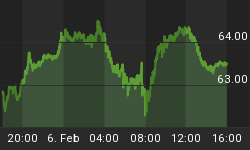On April 5, 2015 I suggested that One of the Longest Cyclical Bull Market In US Stocks May be Coming to an End with an update on August 16, 2015. Now, it seems that Janet Yellen has nailed the end of the cyclical bull market with her telegraphing the specific date for change in policy and then acting on it. Fed Vice Chairman Stanley Fisher's statement, few months ago, that the Fed is data dependent and not date dependent (emphasis in his voice) was part of Fed propaganda to cover up the real reasons behind the change in policy. If the cyclical bull market were coming to an end, as Yellen has concluded, and the bear market is to begin in early 2016 the recession would follow. As one can see in Fig. 1, S&P 500 is where it was approximately 16 months ago and the market has been struggling. It has been waiting for a trigger to enter the bear market and Yellen pulled that trigger on December 16, 2015 once it became clear that the bull couldn't be saved.
Asset Bubbles and Fed Policy
Ever since the famous Irrational Exuberance comments by Greenspan in late 1996, Fed Chairs have made all kinds of comments about bubbles, or lack of bubbles, in the stock market and housing, many times during the Q/A session during Congressional testimonies. Allowing the asset bubbles to continue and then following ultra loose policy during the bubble busts has become an unspoken part of the Fed policy. During confirmation hearings Bernanke denied any housing bubble, and in March 2007 he said that US-wide housing price gains would moderate to 3-5% going forward, i.e., there would be no housing bubble burst anytime soon and not under his watch, and Yellen denied any equity bubble. However, she did make some comments after she became Chairperson about stock market valuations:
July 15, 2014: "Nevertheless, valuation metrics in some sectors do appear substantially stretched -- particularly those for smaller firms in the social media and biotechnology industries, despite a notable downturn in equity prices for such firms early in the year."
May 06, 2015 (video interview): Yellen: Equity Market Valuations Are 'Quite High'
With her second comment she nailed the highs in S&P 500! However, she was reluctant to burst the bubble because high bubble-level asset prices are supposed to boost the economy, via the so-called wealth effect, and bubble bursts invariably lead to a recession. The idea is to sustain the bubble as long as it can be sustained. The rate increase was postponed to allow stocks to remain at "quite high" valuation level as long as possible. And now Yellen has concluded that the bull market is going to end due to horrible earnings (please see Table 1) and it is her last chance to raise the rate before the next recession begins! Once the recession begins Fed plans to cut the rate aggressively to negative territory and embark on QE4.
| Table 1 | ||||||
| Trailing P/E RATIO | Index | Trailing Earnings | ||||
| 12/18/2015 | Year ago | 12/18/2015 | Year ago | 12/18/2015 | Year ago | |
| S&P 500 | 22.65 | 19.48 | 2005.55 | 2070.65 | 88.55 | 106.30 |
| YoY Change | -3.1% | -16.7% | ||||
| The source for Trailing P/E is wsj.com. | ||||||
What Story the Earnings Are Telling?
The trailing 12M S&P 500 earnings decline of 15-20%, while the economy is assumed to be growing and not in a recession yet, is a very good forecaster of a recession as can be seen in Table 2. The source for trailing 12M earnings up to June 2015 used for computation of YoY change is Shiller data.
Table 2 | ||
| Date | YoY S&P 500 Trailing 12M Earnings | Recession Began |
| Jun-90 | -15.7% | Jun-90 |
| Apr-01 | -17.0% | Mar-01 |
| Dec-07 | -18.8% | Dec-07 |
| Dec-15 | -16.7% | ??? |
Fed Communication Policy and Actions
According to a report on CNBC, Bernanke says in his latest book that the Fed policy is 98% "communication" and 2% action. The so-called communication is nothing more than propaganda to influence the financial markets. At critical junctures and turning points the Fed Chair invariably must mislead the public and the markets to create a false sense of confidence in Fed's ability to avert recessions. Supposedly, the Fed has all the tools, and ready to use them, to stop a recession. Hence, the Fed can never forecast a recession, or the next rate cut. The Fed forecast of the target Funds rate is a sham and a blatant lie. This was the forecast in December 2014:
"By the end of 2017, most members anticipate that the rate will be very close to their long-term target of 3.75%."
Now, the same forecast has been moved to 2018. It is in total conflict with financial market based projections. My forecast is that the target rate at the end of 2017 would be close to -1%.
















